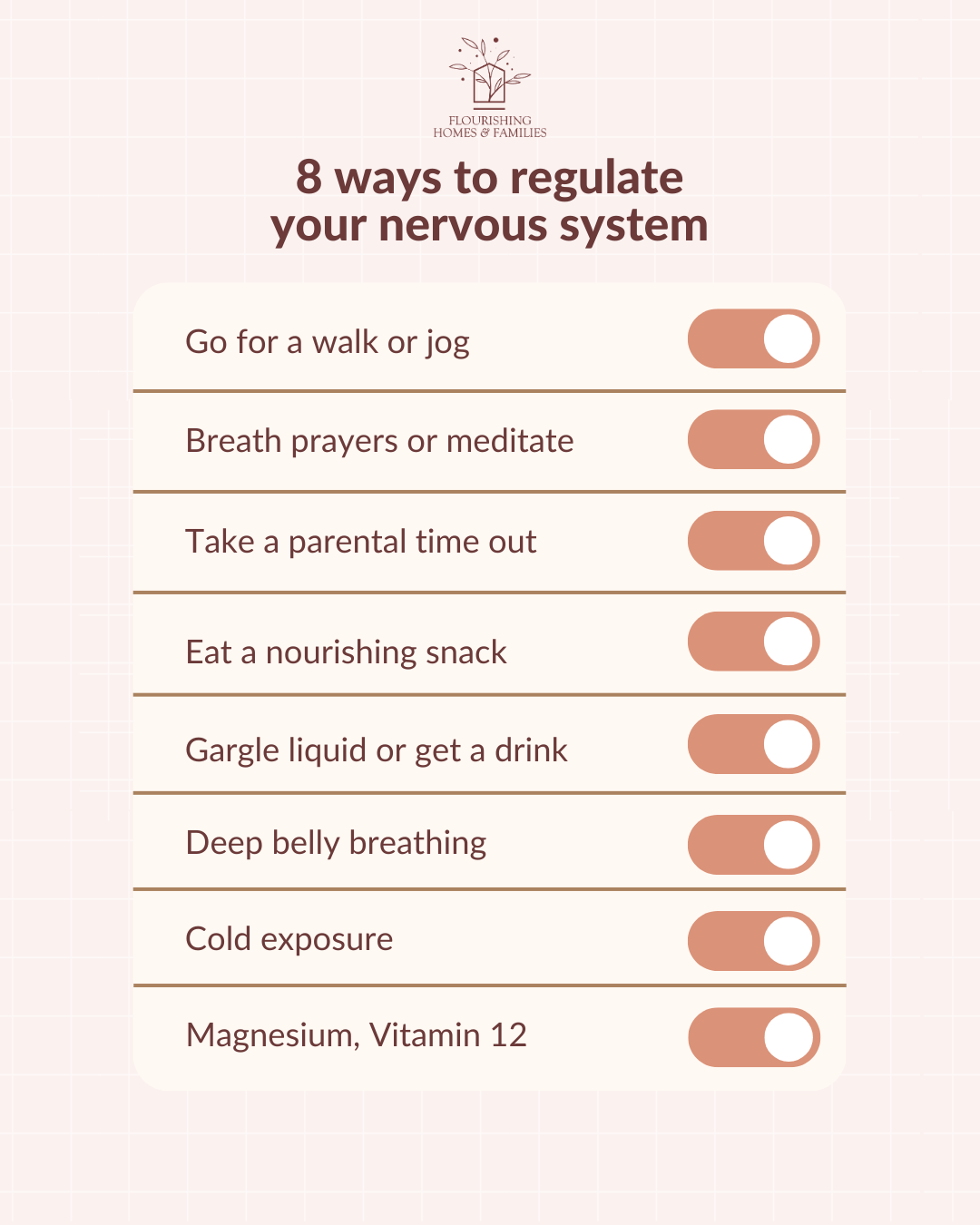
As a parent or caregiver, it's common to feel overwhelmed and stressed. Knowing how to care for our nervous systems so that we avoid burnout and chronic dysregulation is vital not only for our own health but for our ability to help our children regulate as well. It’s often easy to know when your nervous system is activated. Some of the obvious signs are that you feel like you’re on the verge of losing it! But what does a regulated and calm nervous system actually feel like? Let’s take a look:
What is the nervous system anyway? The nervous system is a complex network of cells and nerves that move information throughout the body. When it is regulated, it functions smoothly, allowing us to feel calm, focused, and in control. In contrast, an unregulated nervous system can lead to feelings of anxiety, stress, and overwhelm. The truly remarkable thing about our nervous systems is that they not only transmit information within our own bodies, they communicate with each other's nervous systems as well! This is why some experts say that a family is one nervous system. As parents, our own nervous systems inform the nervous systems of the entire family.
What does a regulated nervous system feel like emotionally? When your nervous system is regulated, you will feel a sense of balance and equilibrium. You are able to respond appropriately to stressors without becoming overwhelmed, or over-excited, and you can recover quickly from difficult situations or stressors. While you will still experience frustration, fear, anger, and sadness, those emotions are manageable and don't interrupt your day. You're able to think clearly and make decisions with ease.
What does a regulated nervous system feel like physically? Physically, a regulated nervous system is evident in a number of ways. Your breathing will naturally be slow and deep, your heart rate will be steady, and your muscles will be relaxed. You may also feel a sense of warmth and comfort in your body (as opposed to tightness in your chest or a knot in your stomach), indicating that your parasympathetic nervous system is activated and your brain and body feel safe.
This is just a place to start. If you recognize that your nervous system is dysregulated much of the time, these ideas are just a place for you to start on the journey to learning how to regulate your brain, body, and spirit. Regulation doesn't happen overnight, and it isn't a one-and-done event. It's something you'll learn to do over and over again until your state of activation becomes fewer and farther between.
You may want to look into:
- Deep pressure
- Mindfulness
- Meditation and prayer
- Journalling
- Vagus Nerve Stimulation
- Somatic Therapy
This isn't about shaming parents who feel dysregulated most or all of the time! I've been there, and I know how hard it is. My goal is to bring awareness and practical steps you can take to nurture and support your own nervous system so you experience more peace in your body, mind, and spirit.

A note about Magneisum and Vitamin B12
Magneisum is a vital nutrient for every body system and has been found to be soothing to the nervous system. (Magnesium Glicinate or Magnesium L Threonate are the most beneficial.)
VITAMIN B12 is essential for nerve health and brain function. The human body cannot generate this, so it is important to source foods that are rich in B12 or take a Vitamin B 12 or B Complex supplement.
Want to learn more? Our Cool, Calm, and Connected workshop explores various ways to regulate your body, mind, and spirit, and will help you understand the power of co-regulation.














1 Comment